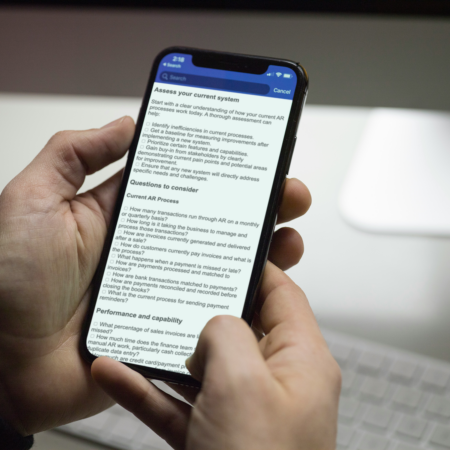
Financial forecasting is a decisive way to meet key goals and avoid financial pitfalls. To adapt and overcome the hurdles of any fast-paced industry, reliably forecasting your expenses and income gives you a major advantage. Let’s look at some hacks to get you faster, more reliable financial forecasting that you can start right now!
Navigating an Uncertain Future
While we can’t totally predict the future, we can plan for them by acting on data trends that indicate where the business is heading. One of the core objectives of any accounting professional is to take the raw debits and credits data generated by your sales cycle and use it to help you visualize the trajectory of your organization. Because accounting is the language of business it’s critical for understanding your overall strengths, weaknesses, and where you can improve your operation to overcome issues. This improvement is done by assessing your financial health and making adjustments to impact future performance.
Another aspect of this is through financial forecasting. Financial forecasting focuses on estimating the income and revenue that the company will achieve in a defined period of time. Besides having a grasp on what your income will look like, this helps you allocate budgets to achieve this number or surpass it. You do this by looking at historical accounting data, including sales activities, and anticipating how you will perform in the next accounting period based on this data. This is also valuable for readjusting your overall business strategy and helping you position yourself to maximize cash flow.
Financial Forecasting Hacks You Can Use Right Now
So, how do you maximize the effectiveness and accuracy of your financial forecasting? Here are some top methods and tricks that can help.
1. Keep Rolling Forecasts
Finances and business factors are constantly changing. It’s critical for you to have a real-time understanding of your current financial health and be able to forecast fluidly in the face of these changes. This helps you plan and adjust your strategy to maximize cost savings and revenue opportunities. Having rolling forecasts lets you be nimble in your planning and be able to pick up on patterns more easily. These patterns will indicate the core influences on your finances.
2. Run Regular Financial Reports
In order to be able to forecast frequently and often, you need a complete view of your financial activities. Project statuses and expenses need to be monitored to ensure that they will align with your revenue expectations. Monitoring cash flow in real-time improves forecast accuracy because you understand where your finances stand and are heading.
3. Increase Communication
The best financial forecasts rely on a 360-degree view of company performance. To meet revenue goals, workflows need to be consistent and thorough. Project deliverables and costs need to align. To forecast, company leaders need to be on the same page. You need real-time updates on the sales funnel, workflow issues, and more – all of these impact potential income. Consider having regular updates with key stakeholders so you can be agile with your forecasts. Automated reports are also great for everyone to visualize financial and operational statuses.
4. Research External Factors
Researching how the market stands, economic trends, competitor trends, and even the social and political environment can give you further insight into consumer behavior. This lets you stay ahead of positive and negative trends that could influence your income. Think of how COVID-19 affected the cash flow of many businesses with shutdowns. As you conduct financial forecasting, these are factors that can play a role on how your company operates and generates cash flow. As you put together a forecast, note how some of these factors could affect the final figures. Make sure to bring this up in team meetings as well.
5. Plan for Different Scenarios
Flexibility is key to all business success. As you build your financial forecast, consider multiple scenarios and how they will affect your final outcome both positively and negatively. You can always have a few different forecasts that reflect these scenarios. The goal here is to allow you to plan for the best and worst cases, allowing your business to proceed regardless.
6. Don’t Use Spreadsheets
Stop using spreadsheets, both for financial forecasting and accounting as a whole. This will complicate your efforts to track and store data, and you run the risk of basing your forecast on information that might have errors. Remember, spreadsheets need to be constantly updated manually if any changes occur. This is tedious, and can greatly slow the turnaround and leave data errors that may warp your forecasts. If you don’t already, use an automated cloud-based accounting system. This will let you store and track all the data you need for forecasting in a single home.
Remember, financial forecasting impacts all levels of your organization and the reverse is true of the forecast itself. For the best results, use an intuitive accounting system to seamlessly collaborate with team members and view data in real-time. This will take much of the strain and guesswork out of forecasting, allowing you to forecast faster and with better results.
Tools for Financial Forecasting Right on Salesforce
Accounting Seed is your Salesforce accounting solution that empowers the financial forecasting process with reliable, automation-focused accounting. Use real-time data and visualization tools like custom dashboards to get the most out of your financial data. If you’re interested in pairing your accounting system with a specialized forecasting solution, our native status lets us to connect reliably to any Salesforce-based product you desire. Check out all of these solutions and more on the AppExchange.
See Accounting Seed in action
Get a close-up view of how accounting on Salesforce can eliminate the need for costly integrations—and silos of mismatched information—by sharing the same database as your CRM.


